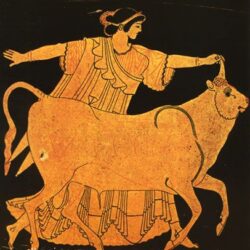Reading the various observations of Joseph Roth, during The Weimar Republic era of Germany was very intriguing to me. I was particularly interested in chapters 14 and 18. Chapter 14 discussed the chaotic nature of Berlin traffic. It would seem that police officers serve little purpose in controlling traffic flow and that roads would need repair everyday. Additionally, motorists and pedestrians seemed to exercise such hostility towards one another. Chapter 18 discusses the ostentatious nature of department stores in Germany. Department stores would be up to fifteen stories high. It is mentioned that “people who dreamed of very large department stores” (Roth 119) only wanted to life themselves above others. I am curious, is the desire for large department stores perhaps people’s longing for a powerful autocracy like the German Empire formally was before 1918? Is the chaotic traffic a representation for how German people feel lost without an autocratic leader? Were the German people looking for a Hitler figure to lead them and show strength post World War 1?

Europe’s Long 20th Century (HIS270 S21)
A Contentious Continent
In the chapter “Some Reflections on Traffic”, Roth goes into great detail about the busy, muddled streets and the animosity between commuters. Something that stood out to me was Roth’s description of policemen causing “confusion and misunderstanding” (Roth, 100). I think this is important to note because it contributes to the idea of a disorganized post-war society where something as arbitrary as everyday commute has become a struggle. Another important idea is that of “the undisciplined character of the postwar generation” (Roth, 101). Based on this, I agree that the public attitude in 1924 hints that the people of Germany were searching for an autocrat to lead them from their struggle rather than resolving it democratically. In a way, it can be argued that this seems “easier” than working through issues together. As you mentioned in your post, the general public was often angry and hostile with one another, suggesting that a powerful leader would be the only thing to draw them back together. On the topic of the department stores, I believe that this was the German people’s way to feel as though they were not falling apart under the economic stress of the time. This plays into the idea of the people longing for an autocrat to take power, but I also recognized it as a sort of “coping mechanism” where strained people attempted to uplift themselves with a false sense of extravagance to feel as though they weren’t going under.